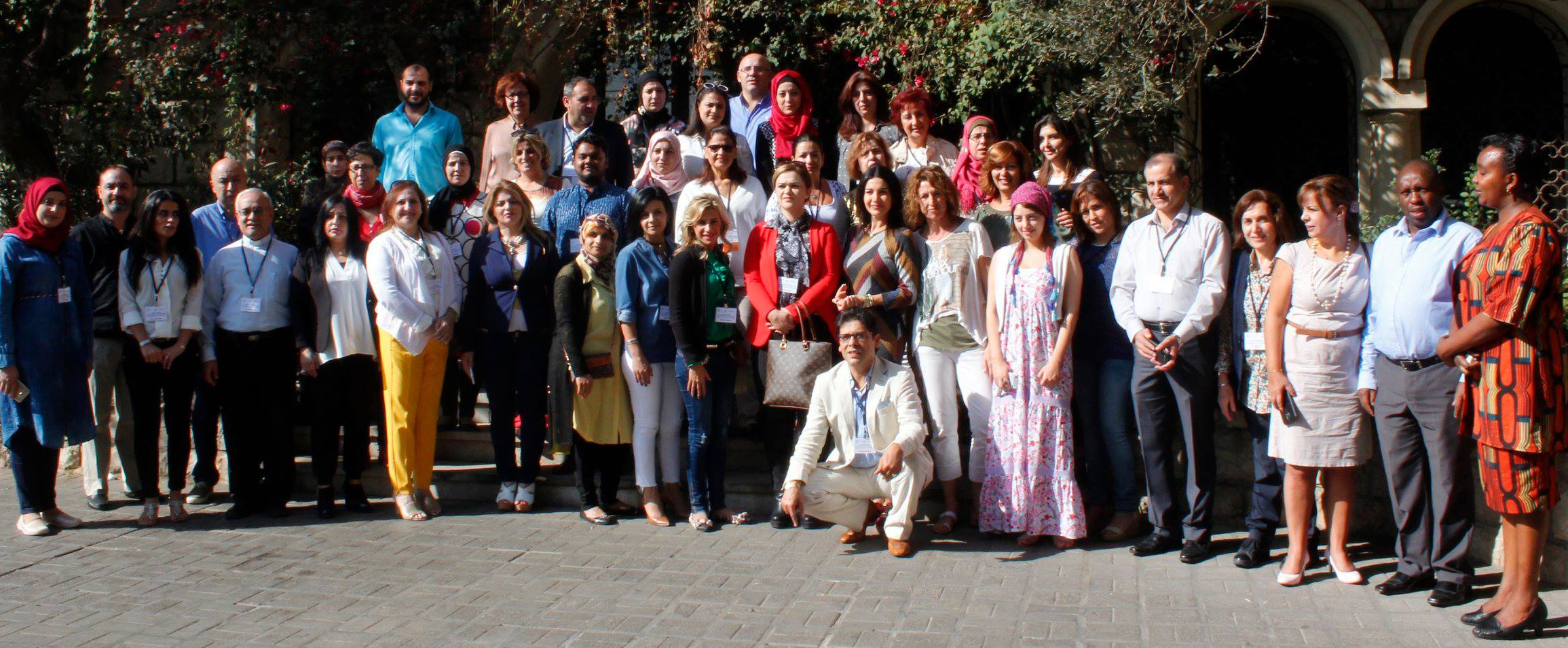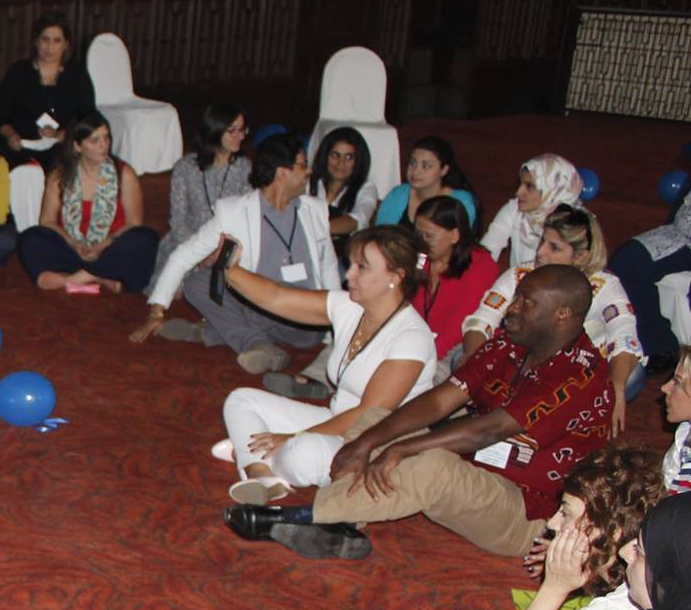In October 2016 the UNESCO Regional Bureau for the Arab States, in collaboration with the Lebanese Ministry of Education and Higher Education, and Arigatou International, organized a three-day workshop in Broumana, Lebanon, aimed to introduce the Learning to Live Together Programme to teachers and school administrators from Lebanon, Syria and Egypt.

Prior to the workshop the Arigatou International Geneva team, headed by Mrs. Maria Lucia Uribe, Director of the office, met with Dr Fadi Yarak, Director General of the Ministry of Education of Lebanon to discuss further collaboration in the framework of Learning to Live Together and as a way to promote values based education. Following the meeting, the team also met with Dr. Nada Oweijane, President of the Center for Educational Research and Development (CERD) to discuss collaborations in the long run for contributions to the education system through Ethics Education and training.
The training workshop aimed to provide hands on training on the Learning to Live Together programme in crisis and emergency situations, targeting teachers and school administrators that work with the refugee crisis. It focused on ethics, values, spirituality, educational approaches, learning modules, learning process and a guided exercise on the use of the ethics education framework.
Participants at the training included teachers, principals of schools, teacher’s advisors, curriculum development officers and representatives from the Ministry of Education. Some of the secondary school teachers came from the EASE programme supporting integration of Syrian refugees, as well as from schools nominated by the Ministry of Education, from UNESCO ASPnet schools, and representatives from the CERD and Ministries of Education from Egypt and Syria.
The training received a very positive feedback from all the participants as well as from the UNESCO Regional Bureau for Education in the Arab States, the Lebanese Ministry of Education and Higher Education, and CERD. In particular, trainees and external observers mostly appreciated the very participatory nature of the training as well as the educational approach and framework that was perceived as flexible, adaptable, and context-sensitive.
The same group of participants will be brought back for a follow up training at the end of the school year in 2017. After the workshop they recommended that not only schools integrating refugees, but also Lebanese schools in general could greatly benefit from the programme and its approach.
As a follow up, in November 2016 the Ethics Education Framework was presented to the curriculum design committee of CERD, highlighting its value to strengthen both teacher training and curriculum design processes. This is another step in the collaborations with UNESCO, the Ministry of Education, and CERD in to enhance Learning to Live Together in Lebanon.
We thank the UNESCO Office for the Arab States and the Ministry of Education for their partnership in this workshop and we look forward to future collaborations.
